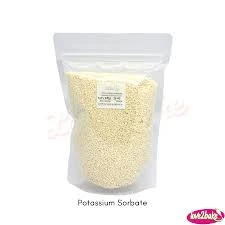
monosodium glutamate natural
Monosodium glutamate (MSG) has long been a topic of discussion in the culinary and nutritional world, recognized primarily for its role as a flavor enhancer. Derived from glutamic acid, an amino acid naturally found in various foods such as tomatoes and cheese, monosodium glutamate is particularly valued for its ability to intensify umami, one of the five basic tastes alongside sweet, sour, bitter, and salty.
Historically, MSG was isolated in 1908 by Japanese chemist Kikunae Ikeda, who noted that it gave a distinctive savoriness to foods, particularly in traditional Japanese dishes like dashi, a broth made from kelp and fish. This discovery paved the way for MSG to be produced on a larger scale and incorporated widely across various cuisines, particularly in Asian cooking. Natural sources of glutamate include mushrooms, seaweed, and fermented products like soy sauce and miso, where the flavor-enhancing properties are evident.
Despite its widespread use, MSG has been met with controversy over its safety and health effects. Some individuals report sensitivity to MSG, with symptoms such as headaches, flushing, and nausea, often referred to as Chinese restaurant syndrome. However, extensive scientific research, including studies conducted by the FDA, the World Health Organization, and various health agencies around the world, has affirmed that monosodium glutamate is generally safe for consumption in moderate amounts. These organizations have recognized MSG as a food additive that poses no significant health risks for the majority of the population.
monosodium glutamate natural

The term natural MSG often appears in discussions about the substance, reflecting a trend towards healthier and more organic food choices. Natural MSG is derived from natural sources through fermentation processes that differ from the chemical production often associated with synthetic MSG. Producers highlight that this method could provide additional nutritional benefits, as it retains the amino acids and other compounds present in the original food ingredients.
In cooking, MSG can be a powerful tool in enhancing flavor without the need for excessive salt, making it a preferable option for those looking to reduce sodium intake. By understanding and utilizing monosodium glutamate responsibly, chefs and home cooks alike can create dishes that are flavorful and satisfying while being mindful of nutritional balance.
In conclusion, monosodium glutamate, particularly in its natural form, serves as a valuable ingredient in the culinary world
. As knowledge about its properties expands, chefs continue to harness its potential to elevate flavors, while ongoing research continues to solidify its safety and efficacy in modern diets.-
nitrile-rubber-honoring-strict-production-standardsNewsAug.22,2025
-
aspartame-ingredients-honoring-food-safety-valuesNewsAug.22,2025
-
fertilizer-for-balanced-plant-nutritionNewsAug.22,2025
-
cyanide-gold-processing-with-high-purity-additivesNewsAug.22,2025
-
formic-acid-in-textile-dyeing-applicationsNewsAug.22,2025
-
aluminum-hydroxide-gel-in-skincare-productsNewsAug.22,2025
-
Regulatory Compliance for Global Mining Chemicals UseNewsAug.12,2025
Hebei Tenger Chemical Technology Co., Ltd. focuses on the chemical industry and is committed to the export service of chemical raw materials.
-

view more DiethanolisopropanolamineIn the ever-growing field of chemical solutions, diethanolisopropanolamine (DEIPA) stands out as a versatile and important compound. Due to its unique chemical structure and properties, DEIPA is of interest to various industries including construction, personal care, and agriculture. -

view more TriisopropanolamineTriisopropanolamine (TIPA) alkanol amine substance, is a kind of alcohol amine compound with amino and alcohol hydroxyl, and because of its molecules contains both amino and hydroxyl. -

view more Tetramethyl Thiuram DisulfideTetramethyl thiuram disulfide, also known as TMTD, is a white to light-yellow powder with a distinct sulfur-like odor. It is soluble in organic solvents such as benzene, acetone, and ethyl acetate, making it highly versatile for use in different formulations. TMTD is known for its excellent vulcanization acceleration properties, which makes it a key ingredient in the production of rubber products. Additionally, it acts as an effective fungicide and bactericide, making it valuable in agricultural applications. Its high purity and stability ensure consistent performance, making it a preferred choice for manufacturers across various industries.





